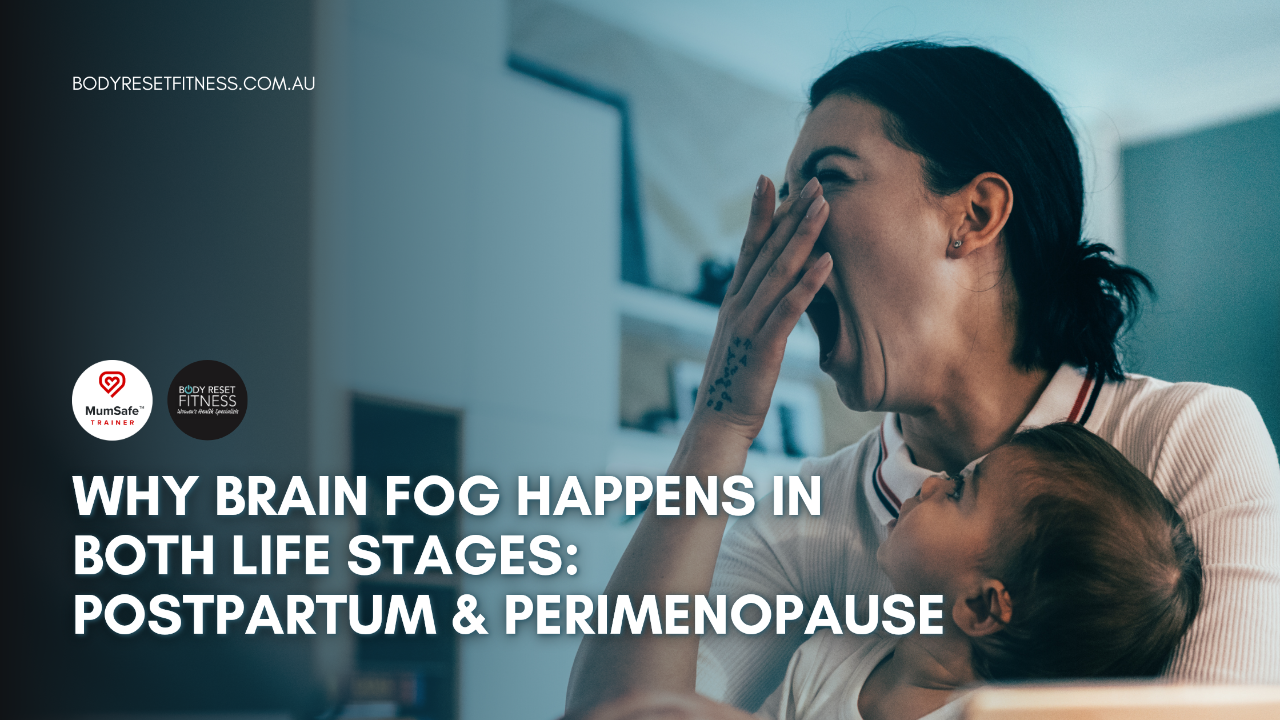Why Brain Fog Happens in Both Life Stages: Postpartum & Perimenopause
Sep 21, 2025
Ever walked into a room and completely forgotten why you’re there? Or found yourself searching for a word that’s just on the tip of your tongue? That fuzzy, frustrating feeling is often called brain fog—and it shows up in two major stages of a woman’s life: postpartum and perimenopause.
The tricky part? In both stages, it can feel like you’re “losing it,” when really, your body is simply adjusting to massive shifts in hormones, sleep, and stress. Understanding what’s happening can take away the shame and help you focus on what your body truly needs.
What is Brain Fog?
Brain fog is more than just forgetfulness. It can feel like:
-
Trouble concentrating
-
Slower thinking
-
Forgetting words or tasks
Postpartum Brain Fog
In the postpartum stage, your body is recovering while also caring for a newborn. Factors like:
-
Sleep deprivation
-
Hormonal shifts
-
The sheer mental load of new motherhood
…all add up to a brain that feels tired and scattered.
Perimenopause Brain Fog
In perimenopause, declining oestrogen plays a huge role. This shift affects brain function directly, disrupting memory, focus, and mood regulation. Add in changing sleep patterns, and your brain feels foggy and less sharp.
The Overlap
Both postpartum and perimenopause share:
-
Hormonal changes
-
Interrupted sleep
-
Emotional stress
…which is why brain fog in these stages can feel so similar.
The Role of Oestrogen
Oestrogen isn’t just about reproduction — it actively supports brain function. When levels dip (after birth or during perimenopause), clarity and memory take a hit.
The Role of Sleep
Poor or broken sleep worsens fog:
-
Postpartum: Night feeds, irregular rest
-
Perimenopause: Hot flushes, night sweats, or insomnia
Without restorative sleep, even the sharpest mind struggles to function.
Lifestyle Support
While you can’t always control hormones, you can support your brain through:
-
Balanced nutrition
-
Regular exercise (especially strength training)
-
Mindful rest and downtime
Gentle Reminder
Brain fog is not a personal failing. It’s your body’s way of signalling that it needs more support. By caring for your hormones, your sleep, and your daily habits, you can find more clarity in both postpartum and perimenopause.